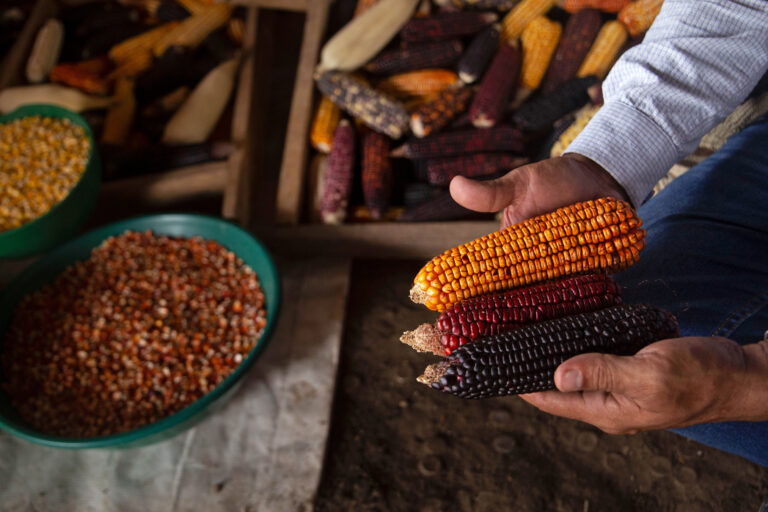- In response to last year’s record-breaking heat due to El Niño and impacts from climate change, Indigenous Zenù farmers in Colombia are trying to revive the cultivation of traditional climate-resilient seeds and agroecology systems.
- One traditional farming system combines farming with fishing: locals fish during the rainy season when water levels are high, and farm during the dry season on the fertile soils left by the receding water.
- Locals and ecologists say conflicts over land with surrounding plantation owners, cattle ranchers and mines are also worsening the impacts of the climate crisis.
- To protect their land, the Zenù reserve, which is today surrounded by monoculture plantations, was in 2005 declared the first Colombian territory free from GMOs.
MONTERÍA, Colombia — “Look at the rooms in our house,” says Remberto Gil, 45, during a sweltering day last September. “During this time of the year, they are typically overflowing with freshly harvested corn to the point where we only have space to sleep in hammocks hanging over the cobs.”
An Indigenous Zenù farmer, Gil lives in the Zenù reserve of San Andrés de Sotavento, a nearly 10,000-hectare (25,000-acre) piece of land that’s home to 33,000 people in northwestern Colombia.
“Now, everything is empty,” he adds. “We lost around 90% of the first harvest due to drought, and the little corn we have now is smaller than usual. We had no rain during the last month, and now we can’t sow.”
In the Zenù reserve, issues with the weather, climate or soil are spread by word of mouth between farmers, or on La Positiva 103.0, a community agroecology radio station. And what’s been on every farmer’s mind is last year’s record-breaking heat and droughts. Both of these were charged by the twin impacts of climate change and a newly developing El Niño, a naturally occurring warmer period that last occurred here in 2016, say climate scientists.
Experts from Colombia’s Institute of Hydrology, Meteorology and Environmental Studies say the impacts of El Niño will be felt in Colombia until April 2024, adding to farmers’ concerns. Other scientists forecast June to August may be even hotter than 2023, and the next five years could be the hottest on record. On Jan. 24, President Gustavo Petro said he will declare wildfires a natural disaster, following an increase in forest fires that scientists attribute to the effects of El Niño.


